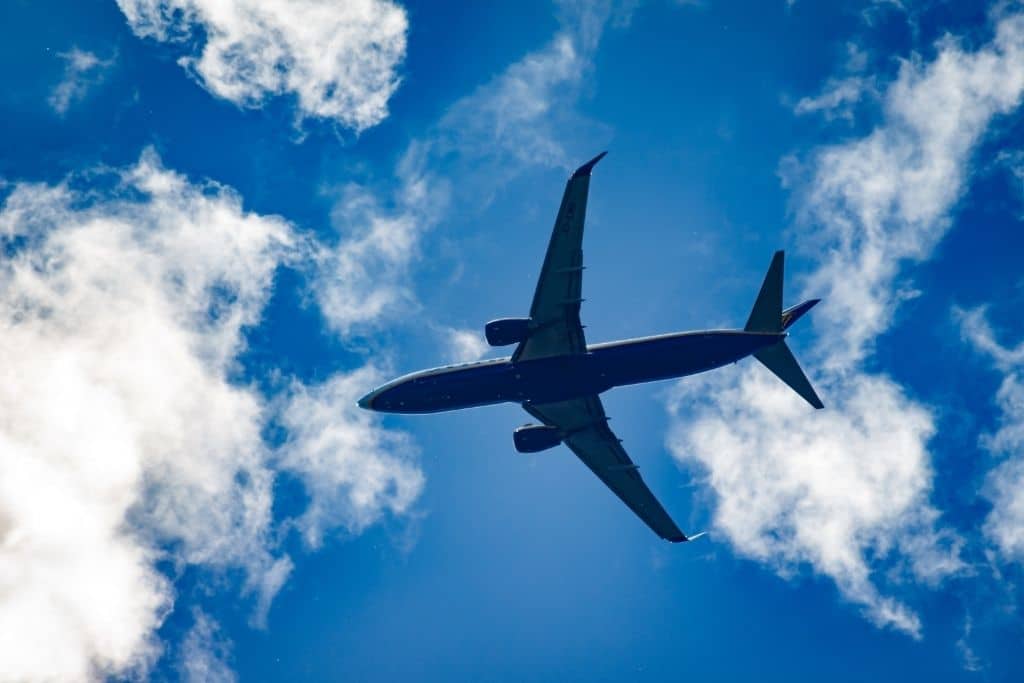Expanding the European Union’s ETS to cover all flight coming and out of the bloc could increase 113% of aviation emissions reduction from the proposed scope on just flights within the European Economic Area.
—
The European carbon market could deliver up to 53% more emission reductions for the region’s aviation sector if it was applied on all departing flights, and 113% more if extended to both incoming and outgoing flights, a new study finds.
EU’s Emissions Trading System (ETS), also known as the cap and trade system, is a financial market mechanism to incentivise polluting companies and entities to reduce greenhouse gas emissions. It is the second largest carbon market in the world, and is currently applied to heavy industries like the power generation sector, combustion plants, oil refineries, as well as aviation. Airlines therefore have to buy allowances to pay for their CO2 emissions.
Though the global aviation sector currently accounts for only 2.5% of the global carbon dioxide emissions, projected growth trends estimate say that the industry is still set to grow by 5% a year on average from now to 2050 propelled by globalisation and in spite of disruptions caused by the Covid-19 pandemic.
Putting a price on emissions from aviation is an important tool to help the bloc achieve its climate goals of limiting global temperature rise to under 1.5-2C. But the carbon market that encompasses Europe’s aviation sector currently only applies to flights within the European Economic Area (EEA), which has had limited impact on reducing overall carbon emissions in the industry – flights that are not regulated by the EU ETS represent two thirds of all European aviation emissions.
These emissions, however, are supposed to be compensated under UN’s International Civil Aviation Organisation (ICAO)’s offsetting scheme, known as Corsia. But a number of studies, including a European Commission own impact assessment, found that the oversupply of cheap offsets has disincentivized airlines to adopt clean technology or sustainable fuels. To put it simply, over 80% of airlines’ emissions are currently not priced effectively.
You might also like: Decarbonising Aviation: The Future of Electric Aviation and Sustainable Aviation Fuel
There is a solution, and it is to extend the carbon market to cover all departing flights, not just within the EEA, according to a new study by campaign group Transport & Environment (T&E) and Carbon Market Watch. Doing so will increase expected emissions reductions by a further 53% compared to the current plan, and by 113% if applied to both incoming and outgoing flights.
The report also laid out the major economic benefits in enlarging the ETS scope. Currently, revenues generated from airline allowance purchases between 2021 and 2035 would amount to €26.1 billion (USD$27.8bn). If expanded to apply to flights departing the EEA and both departing and arriving flights, revenues would increase to €60.8 billion (USD$65bn) and €95.4 billion (USD$102bn) respectively. All the revenue could be redirected into decarbonisation efforts, including development and adoption of Sustainable Aviation Fuel, as well as the electrification of planes.
Authors of the report have also presented other policy recommendations to tackle aviation’s carbon footprint. The EU should stop relying on Corsia for offsets, accelerate the phase-out of free allowances for airlines to 2024, and invest in clean technologies such as direct air capture, synthetic aviation fuels, zero-emission aircraft but also modal shift and re-skilling of workers.
You might also like: 4 Sustainable Aviation Fuel Companies Leading the Way to Net-Zero Flying


















